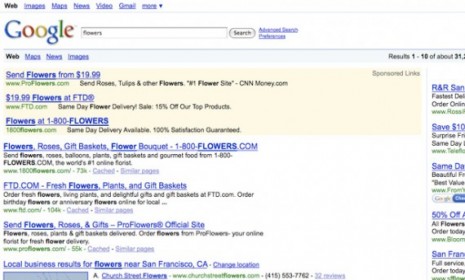Should Google include your own Gmails in search results?
In a dubious bid to make it easier for you to find the info you need, Google Search will soon mix relevant emails you've written or received in with your results

A free daily email with the biggest news stories of the day – and the best features from TheWeek.com
You are now subscribed
Your newsletter sign-up was successful
Pretty soon, searching for something on Google could point you back to your own Gmail inbox. The search giant is reportedly testing an experimental new feature that will mine a user's email for any relevant data tied to a search request. Sound confusing? It's more simple than it sounds. Here's what you need to know:
How would this work exactly?
Essentially, when you type in a search string, Google will include related personal emails in the right column. For example: Say you're planning to travel to the Grand Canyon with friends from across the country. In the main results column, a search for "Grand Canyon hotels" will still yield the usual search results (the Bright Angel Lodge, for instance). But in the new Gmail results module off to the right, Google will also include email threads between you and your friends about the trip. Theoretically, this will make it easier to double-check logistics (such as everyone's windows of availability) and figure out which days you should request off from work.
The Week
Escape your echo chamber. Get the facts behind the news, plus analysis from multiple perspectives.

Sign up for The Week's Free Newsletters
From our morning news briefing to a weekly Good News Newsletter, get the best of The Week delivered directly to your inbox.
From our morning news briefing to a weekly Good News Newsletter, get the best of The Week delivered directly to your inbox.
So it won't search anyone else's email, just mine?
That's correct. You'll need to be logged into your Google account for the feature to even work, so users don't have to worry about someone mistakably reading their emails. Also, if you're in a public setting (like at work) you can toggle the Gmail box to hide it if someone's peering over your shoulder.
Is this feature mandatory?
Nope. The feature will be opt-in, says Jose Vilches at TechSpot, "which means that if you don't go out of your way to participate, nothing will change for you" and your email and search results will remain separate. Google is testing the feature right now in a limited trial, and understands that it needs to roll out new services like this in "baby steps" or risk user outrage.
A free daily email with the biggest news stories of the day – and the best features from TheWeek.com
Why are they doing this?
It's all tied back to Google's new "Knowledge Graph" initiative. Essentially, the search giant's big goal is to make finding information friendlier, more relevant, and more personal. Although Google has a "commanding lead" in search, it's worried about competitors like Facebook, says the Associated Press. "As social networks have made it easier to share information online, the web is starting to revolve more around people than the keywords and links" that Google's search engine provides. Roping in Gmail, arguably one of the company's most popular services, is just the next step.
Is this a good idea?
"Blurring a traditionally private space" like Gmail with public search results will likely prompt uneasiness, says Thomas Claburn at InformationWeek. If Google stumbles with this project, they could lose even more trust with the public. "Ultimately, it might not be a bad idea [for curious users] to hang back and let others stumble across any unexpected security issues," at least at first.
Sources: Associated Press, InformationWeek, TechSpot, Washington Post
-
 6 of the world’s most accessible destinations
6 of the world’s most accessible destinationsThe Week Recommends Experience all of Berlin, Singapore and Sydney
-
 How the FCC’s ‘equal time’ rule works
How the FCC’s ‘equal time’ rule worksIn the Spotlight The law is at the heart of the Colbert-CBS conflict
-
 What is the endgame in the DHS shutdown?
What is the endgame in the DHS shutdown?Today’s Big Question Democrats want to rein in ICE’s immigration crackdown